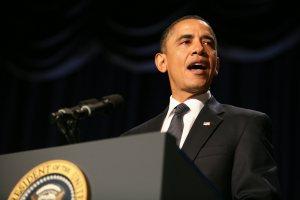
By Alan Bean
President Obama’s comments at the annual prayer breakfast sparked a tsunami of protest from conservative politicians and opinion leaders, but it’s not clear why. The president’s remarks were measured and carefully calibrated to the point of being banal. But two weeks after the speech, Rudy Giuliani is using Obama’s remarks as evidence that the president “doesn’t love America.”
Bobby Jindal, the increasingly cantankerous governor of Louisiana, was so thrilled with Giuliani’s tirade that he called the former New York mayor to congratulate him.
Mike Huckabee spoke for many when he claimed that Obama favors Islam over both Christianity and Judaism.
Here’s the sound bite that really bothers conservative Christians:
Lest we get on our high horse and think this is unique to some other place, remember that during the Crusades and the Inquisition, people committed terrible deeds in the name of Christ. In our home country, slavery and Jim Crow all too often was justified in the name of Christ.
His critics maintain that Obama was creating a moral equivalence between contemporary Christians and the ISIS thugs who burned a Jordanian pilot to death. Christians may have done some bad stuff back in the day, the argument goes, but that was before the Protestant Reformation when a lot of bad stuff was going down.
The reference to slavery and Jim Crow really got folks riled. “He also brought in Jim Crow laws,” Huckabee said, “as if it was Christians who were responsible for racism in America.”
Well, actually, Christians were responsible for just about all the evil perpetrated by American citizens over the centuries. Historically, the vast majority of American decision makers have been practicing Christians. There is a good reason why southern evangelicalism focuses so intently on personal sanctity and the afterlife while ignoring the social relevance of the gospel. The southern “gospel” was designed to make Christianity compatible with racial oppression. Once you have signed off on slavery, how much gospel have you still got?
The flimsy inaccuracy of the criticisms directed at the president’s prayer breakfast address suggest that something deeper is in the works. A simple history lesson isn’t going to satisfy these people. Either they don’t want to know their own religious, national and religious history or they know and simply don’t care. This isn’t about that.
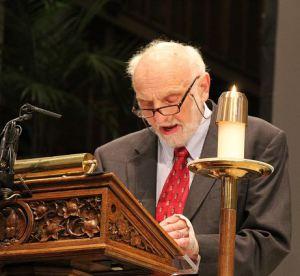
Walter Brueggemann
In 1997, four years before 9-11, an Old Testament scholar named Walter Brueggemann published his Theology of the Old Testament. In the opening chapters he offered a pencil sketch of “the economic-political crisis” driving contemporary scholarship. The big reality of the late twentieth century, Brueggemann said, was “the decentering of the long-established privilege of Euro-American Christendom.”
One sign of that “decentering” is “the relentless rise of Islam as a challenge to Christian domination.” The tension between a dying Christendom and a resurgent Islam created “a situation of revolutionary struggle that will not abate any time soon.”
Prophetic words, as it turns out. And it is precisely this “decentering of the long-established privilege of Euro-American Christendom” that energizes Obama’s critics. Christianity is a spent force in Western Europe, Canada and Australia, and her demise is increasingly apparent in the coastal United States. There are plenty of Christians living in these regions, of course, but, with few exceptions, they have become politically irrelevant. In the West, with few exceptions, it is axiomatic that religion and politics don’t mix.
Conservative Christians in evangelical America look out on a sea of social problems and dream of a Christian America. The last bastion of Western Christendom is in the heartland and southern states of the United States, and this is where the president’s harshest critics live.
When president Obama is chastised for “not loving America”, it is the America where Christendom is still a thing that folks are talking about. Obama wasn’t saying that Muslims are more lovable or praiseworthy than Christians and Jews; but he was arguing that all religions should enjoy an equal footing in America.
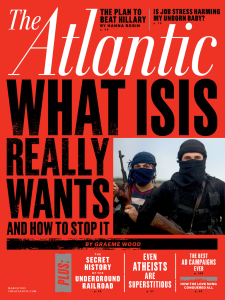 Obama also realizes that non-Muslims must be careful about commenting about inter-Muslim affairs. As Graeme Wood argues in his excellent Atlantic essay, “Non-Muslims cannot tell Muslims how to practice their religion properly.” The people with the best chance of undermining ISIS, Wood says, aren’t westerners who have no idea what’s happening or secularized Muslims who ignore Islamic teaching they find inconvenient. Not only does ISIS not speak for Islam, Wood says, it doesn’t even speak for the vast majority of ultra-conservative Muslims who interpret the Quran literally and dream of living in a purified Islamic state.
Obama also realizes that non-Muslims must be careful about commenting about inter-Muslim affairs. As Graeme Wood argues in his excellent Atlantic essay, “Non-Muslims cannot tell Muslims how to practice their religion properly.” The people with the best chance of undermining ISIS, Wood says, aren’t westerners who have no idea what’s happening or secularized Muslims who ignore Islamic teaching they find inconvenient. Not only does ISIS not speak for Islam, Wood says, it doesn’t even speak for the vast majority of ultra-conservative Muslims who interpret the Quran literally and dream of living in a purified Islamic state.
All three Abrahamic faiths, Judaism, Christianity and Islam, have been shaped by warfare and tragedy. Most of the literature found in what Christians call the Old Testament was either inspired by the Babylonian catastrophe of the 6th century BCE or reworked in response to that unspeakable tragedy. This helps explain the curious mix of beauty and rage we find in the text. In Psalm 137, for instance:
By the waters of Babylon–there we sat down and wept
when we remembered Zion.
gives way to
O daughter Babylon, you devastator!
Happy shall they be who take your little ones
and dash them against the rock!
The author of these lines isn’t a monster; he had simply seen too many vulnerable children die in precisely this manner.
Similarly, the seer of Revelation almost certainly lived through the destruction of Jerusalem in CE in 70 CE, a debacle that claimed over 1 million people lives. His desire to see the smoke rising from Babylon (a code name for Rome) was palpable. As a result, the beauty of Revelation is frequently engulfed by the fires of hell.
People who want to submit completely to a religious tradition in times of great upheaval will often seize on the most violent aspects of that legacy.
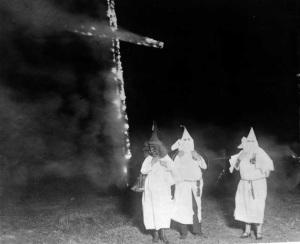 The young men flocking to the banner of ISIS aren’t subhuman animals; they are normal human beings who have been overshadowed, stressed and manipulated by western hegemony for so long that the desire for revenge has become all-consuming.
The young men flocking to the banner of ISIS aren’t subhuman animals; they are normal human beings who have been overshadowed, stressed and manipulated by western hegemony for so long that the desire for revenge has become all-consuming.
I cannot grasp, for the life of me, how a video depicting the immolation of a helpless man can spark dreams of glory. ISIS videos are of a piece with the postcards Southerners once distributed to commemorate the lynching (often over an open fire) of a poor Black man. Both cultural artifacts fill me with dismay and incomprehension.
Those fighting for the survival of American Christendom can’t see the ISIS fighters as human beings; instead they are regarded as pure evil, a subhuman manifestation of the demonic. The evil driving ISIS is undeniable; but it is a sadly human species of evil. In fact, it’s precisely the brand of evil that has marred the American story.
Those fighting a last ditch battle to preserve American Christendom have good reason for concern. But Western Christendom, like Babylon and Rome before it, is a doomed enterprise. The patient is on life support; the kind response is to pull the plug and let her go. Then we can start considering comes next.
A religious consensus grounded in a myopic Southern evangelicalism isn’t sustainable, nor should it deserve to be sustained. Young people are not inspired by the old, old story us old-timers took in with our mother’s milk. Millennials are asking hard questions and the guardians of American Christendom have no answers. None at all.
The only choice is to go back to the beginning. For Christians, that means returning to the majesty of Jesus and hearing him speak to us as if for the first time.
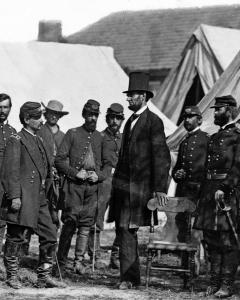 But president Obama is right to insist that neither Christianity nor any other religion should claim special privilege in America. We can still be “the last, best hope of earth,” but not by clinging to privilege. Lincoln’s “last, best hope of earth” reference dovetailed with an appeal for new dreams. “The dogmas of the quiet past,” Lincoln insisted in 1862, “are inadequate to the stormy present.”
But president Obama is right to insist that neither Christianity nor any other religion should claim special privilege in America. We can still be “the last, best hope of earth,” but not by clinging to privilege. Lincoln’s “last, best hope of earth” reference dovetailed with an appeal for new dreams. “The dogmas of the quiet past,” Lincoln insisted in 1862, “are inadequate to the stormy present.”
Lincoln was right. We live in a revolutionary time. You see it in the Muslim world, and you see it in the peculiar religious politics in our America. The old verities and compromises cannot stand; the center will not hold. New light is needed.
This means that Christians, Muslims, Jews and representatives of all the great religions of the world must bring their wisdom to the table. In times of religious strife secularism looks mighty tempting. For some it may be right. We need the calm voice of reason. But excluding religious wisdom from the world of politics is neither practical nor desirable.
If we have the courage to realize that “the dogmas of the quiet past, are inadequate to the stormy present,” we might still become the last, best hope of earth.
